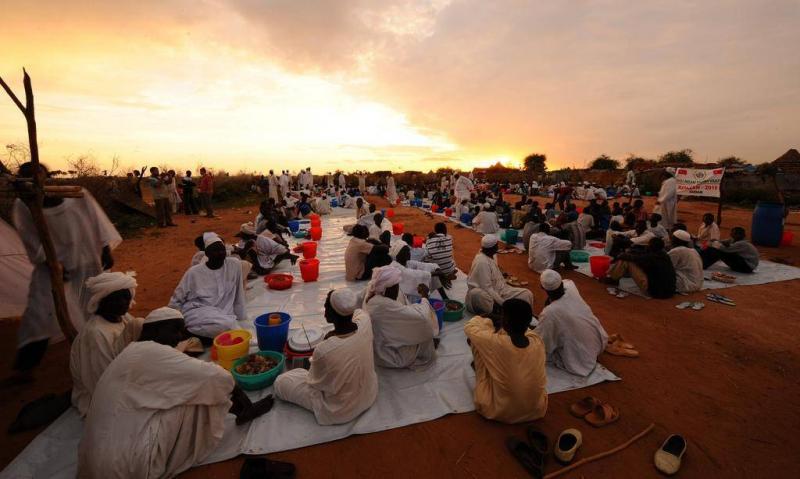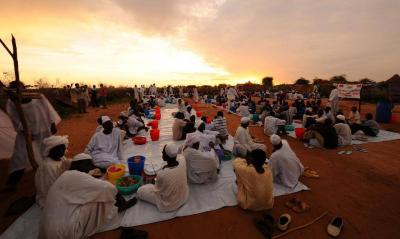Since ancient times, Sudanese people have upheld a historic Ramadan tradition involving a feast for the dead to honor their memory and as a tribute to them. This entrenched Sudanese tradition is celebrated annually and is locally known as "Dinner for the Dead" or "Al-Rahmatat" in the local dialect, which means "the mercy has come" or "the mercy comes." It is usually held on the last Friday of Ramadan, referred to as the "Orphan Friday."
A Sudanese heritage researcher told "Al-Arabiya.net": "To my knowledge, Al-Rahmatat is held by the family of the deceased a year after their passing, and they prepare a dinner feast to invite others to pray for the deceased. Hence, its name comes from a request for mercy for the deceased. This custom is rare and is mainly held for specific individuals, such as sheikhs and scholars."
Conversely, experts in folk heritage affirm that the Dinner for the Dead is a traditional Sudanese practice passed down since ancient times. Family members of the deceased, especially in rural areas, strive to commemorate their memory by preparing a feast intending to get closer to God and donate in the soul's name. Typically, "Al-Rahmatat" is organized on the last Friday of Ramadan or sometimes on Thursday.
The act of mercy extends not only to the deceased but also to the living on that day, who benefit from that mercy, especially young children who play and enjoy delicious food. The main dish at the feast for the dead or "Al-Rahmatat" is made of bread mixed with stew and covered with rice and meat.
It is not limited to the household or guests only; some families lean toward slaughtering animals as an offering to God and as a charity for the souls of the dead. The generosity of "Mercy Day" extends to include everyone, including neighbors, religious schools, and soup kitchens in mosques, as well as refugees, hospitals, and passersby on the streets.
There are specific rituals that accompany the Dinner for the Dead or "Al-Rahmatat," fueled by children and young boys, who move from house to house, beating drums and chanting traditional songs urging households to promptly provide them with food. These traditional songs also include prayers for mercy and forgiveness for the deceased. The entire custom expresses a spirit of solidarity, mutual support, and community among Sudanese people, especially during Ramadan, which holds a noble place in their culture.




